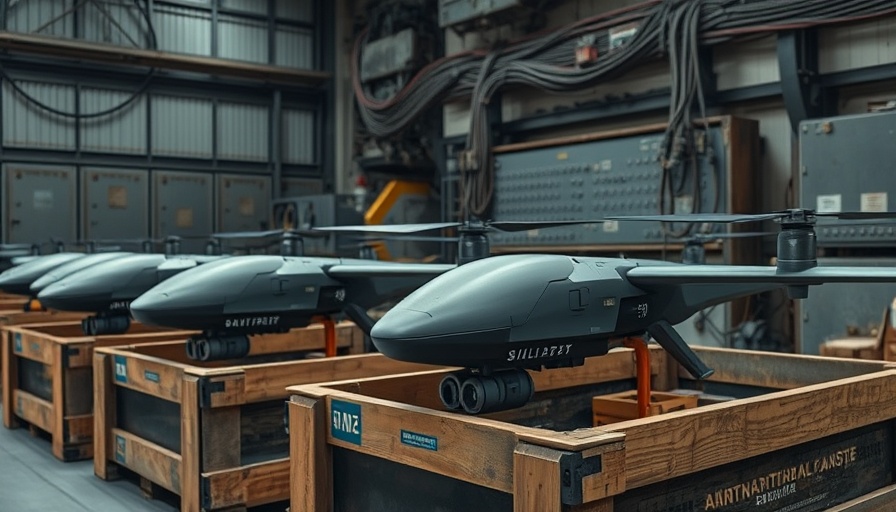
Ukraine’s Strategic Strike: A New Frontier in Drone Warfare
In a stunning display of military innovation, Ukraine has targeted four key Russian airfields in a major drone attack, signaling a crucial shift in the ongoing conflict between the two nations. President Volodymyr Zelenskyy announced that these attacks would be remembered for their significance in modern military history, illustrating Ukraine's commitment to defending its sovereignty amidst a prolonged conflict that has captured the attention of the world.
The recent drone strikes represent more than just an escalation in hostilities; they signify the increasing effectiveness and tactical employability of drone technology in contemporary warfare. The use of drones allows for precision strikes that minimize risk to personnel while maximizing impact on strategic military assets. This not only disrupts the operational capabilities of the Russian forces but also sends a clear message of resilience and innovation from Ukraine.
Historical Context: Understanding the Drone Warfare Evolution
The reliance on drones in military operations is not a new phenomenon, but its rise during conflicts like the one in Ukraine reflects a broader trend within modern warfare. Initially used for reconnaissance, drones have evolved into powerful tools for direct engagement. What force initially viewed as an ancillary capability is now central to military tactics, reshaping how nations approach combat. This evolution is particularly evident in Ukraine, where the constraints of conventional military might have led to a greater emphasis on asymmetric warfare – a strategy that levels the playing field against a larger adversary.
The Importance of Targeting Airfields in Warfare
Targeting airfields is critical in any military strategy since they serve as vital hubs for air operations. By neutralizing these assets, Ukraine aims to significantly impair Russia's aerial capabilities. The successful attack serves multiple purposes: it disrupts flight operations, affects troop morale, and emphasizes the shifting dynamics of the war, portraying Ukraine as an offensive force rather than a purely defensive one.
Opposition Perspectives on Drone Warfare and International Reactions
While the strategic importance of drone strikes is clear, the international community remains divided on the ethics and implications of utilizing such technology. Critics argue that increased reliance on drones raises concerns about accountability and civilian casualties. Perspectives on drone warfare highlight the broader moral dilemmas in modern conflict, as nations grapple with balancing military effectiveness against humanitarian considerations.
Future Predictions: Will Drone Warfare Redefine Military Engagement?
The implications of Ukraine's drone strikes extend far beyond the immediate conflict with Russia. Military analysts suggest that this tactic could inspire other nations to adopt similar drone strategies, potentially altering the landscape of military engagement worldwide. As drone technology continues to evolve, it may prompt international discussions around regulation, oversight, and ethical considerations in the use of unmanned weapons.
Conclusions and the Path Forward for Ukraine
As Ukraine continues to assert its dominance in drone warfare, the situation poses critical questions about the future of military engagements. Will this adaptability serve as a model for resistance against larger powers? The ongoing developments in the Ukraine-Russia conflict may provide the insights needed to redefine traditional warfare practices.
In light of recent events, it is essential for the global community, including the United States, to monitor developments closely. Understanding the ramifications of these drone strikes may offer deeper insights into not just this conflict but also broader geopolitical dynamics at play across the world.
 Add Element
Add Element  Add Row
Add Row 



Write A Comment